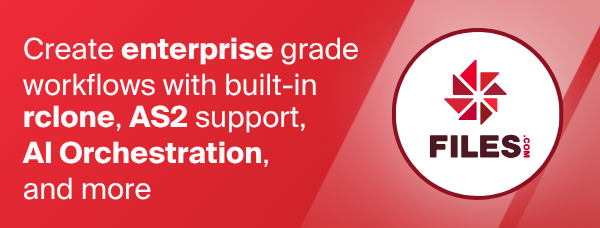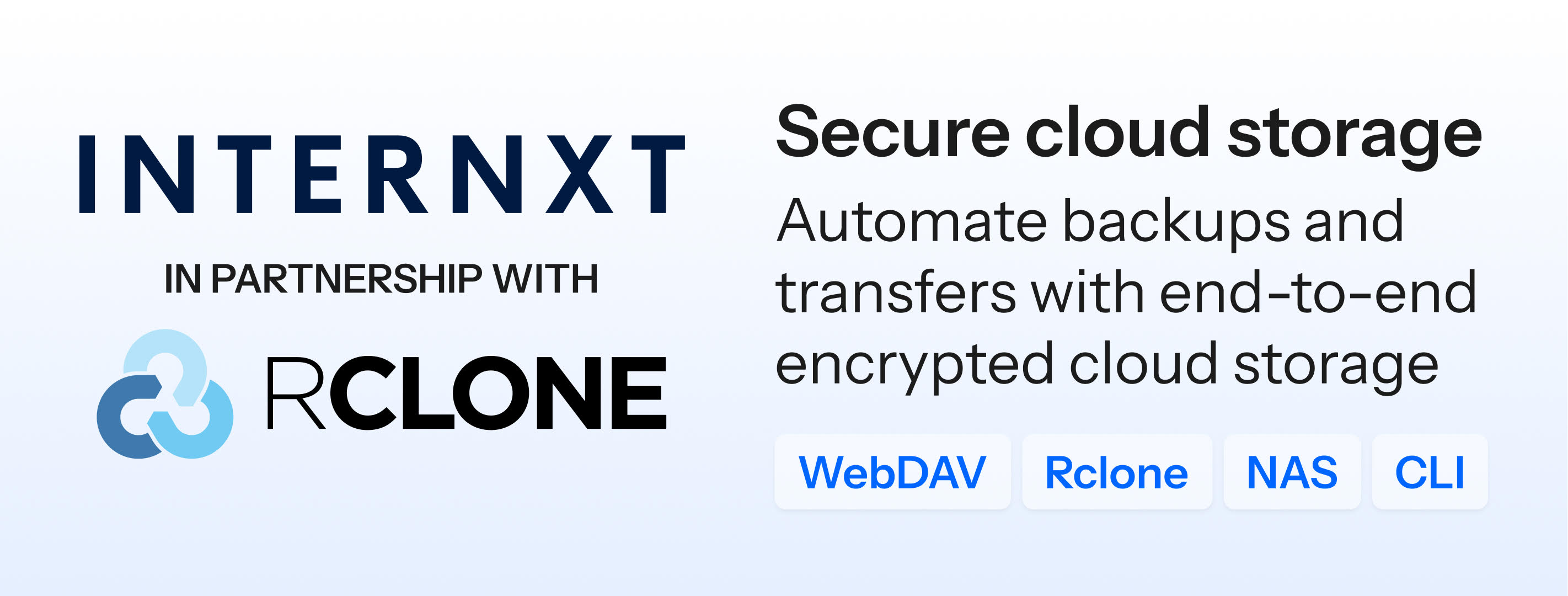Rclone Privacy Policy
What is this Privacy Policy for?
This privacy policy is for this website https://rclone.org and governs the privacy of its users who choose to use it.
The policy sets out the different areas where user privacy is concerned and outlines the obligations & requirements of the users, the website and website owners. Furthermore the way this website processes, stores and protects user data and information will also be detailed within this policy.
The Website
This website and its owners take a proactive approach to user privacy and ensure the necessary steps are taken to protect the privacy of its users throughout their visiting experience. This website complies to all UK national laws and requirements for user privacy.
Use of Cookies
This website uses cookies to better the users experience while visiting the website. Where applicable this website uses a cookie control system allowing the user on their first visit to the website to allow or disallow the use of cookies on their computer / device. This complies with recent legislation requirements for websites to obtain explicit consent from users before leaving behind or reading files such as cookies on a user's computer / device.
Cookies are small files saved to the user's computers hard drive that track, save and store information about the user's interactions and usage of the website. This allows the website, through its server to provide the users with a tailored experience within this website.
Users are advised that if they wish to deny the use and saving of cookies from this website on to their computers hard drive they should take necessary steps within their web browsers security settings to block all cookies from this website and its external serving vendors.
This website uses tracking software to monitor its visitors to better understand how they use it. This software is provided by Google Analytics which uses cookies to track visitor usage. The software will save a cookie to your computers hard drive in order to track and monitor your engagement and usage of the website, but will not store, save or collect personal information. You can read Google's privacy policy here for further information.
Other cookies may be stored to your computers hard drive by external vendors when this website uses referral programs, sponsored links or adverts. Such cookies are used for conversion and referral tracking and typically expire after 30 days, though some may take longer. No personal information is stored, saved or collected.
Contact & Communication
Users contacting this website and/or its owners do so at their own discretion and provide any such personal details requested at their own risk. Your personal information is kept private and stored securely until a time it is no longer required or has no use, as detailed in the Data Protection Act 1998.
This website and its owners use any information submitted to provide you with further information about the products / services they offer or to assist you in answering any questions or queries you may have submitted.
External Links
Although this website only looks to include quality, safe and relevant external links, users are advised adopt a policy of caution before clicking any external web links mentioned throughout this website.
The owners of this website cannot guarantee or verify the contents of any externally linked website despite their best efforts. Users should therefore note they click on external links at their own risk and this website and its owners cannot be held liable for any damages or implications caused by visiting any external links mentioned.
Adverts and Sponsored Links
This website may contain sponsored links and adverts. These will typically be served through our advertising partners, to whom may have detailed privacy policies relating directly to the adverts they serve.
Clicking on any such adverts will send you to the advertisers website through a referral program which may use cookies and will track the number of referrals sent from this website. This may include the use of cookies which may in turn be saved on your computers hard drive. Users should therefore note they click on sponsored external links at their own risk and this website and its owners cannot be held liable for any damages or implications caused by visiting any external links mentioned.
Social Media Platforms
Communication, engagement and actions taken through external social media platforms that this website and its owners participate on are subject to the terms and conditions as well as the privacy policies held with each social media platform respectively.
Users are advised to use social media platforms wisely and communicate / engage upon them with due care and caution in regard to their own privacy and personal details. This website nor its owners will ever ask for personal or sensitive information through social media platforms and encourage users wishing to discuss sensitive details to contact them through primary communication channels such as email.
This website may use social sharing buttons which help share web content directly from web pages to the social media platform in question. Users are advised before using such social sharing buttons that they do so at their own discretion and note that the social media platform may track and save your request to share a web page respectively through your social media platform account.
Use of Cloud API User Data
Rclone is a command-line program to manage files on cloud storage. Its sole purpose is to access and manipulate user content in the supported cloud storage systems from a local machine of the end user. For accessing the user content via the cloud provider API, Rclone uses authentication mechanisms, such as OAuth or HTTP Cookies, depending on the particular cloud provider offerings. Use of these authentication mechanisms and user data is governed by the privacy policies mentioned in the Resources & Further Information section and followed by the privacy policy of Rclone.
- Rclone provides the end user with access to their files available in a storage system associated by the authentication credentials via the publicly exposed API of the storage system.
- Rclone allows storing the authentication credentials on the user machine in the local configuration file.
- Rclone does not share any user data with third parties.
User Data Collection and Storage
This section outlines how rclone accesses, uses, stores, and shares user data obtained from service provider APIs. Our use of information received from provider APIs will adhere to the provider API Services User Data Policy, including the Limited Use requirements.
Rclone is a client-side command-line program that users run on their own computers to manage their files on cloud storage services. The rclone project does not operate any servers that store or process your personal data. All data access and processing occurs directly on the user's machine and between the user's machine and the provider API servers.
Data Accessed
When you authorize rclone to access your files on your provider, it may access the following types of data, depending on the permissions you grant:
-
Files: Rclone accesses the metadata (filenames, sizes, modification times, etc.) and content of your files and folders on your provider. This is necessary for rclone to perform file management tasks like copying, syncing, moving, and listing files.
-
Authentication Tokens: Rclone requests OAuth 2.0 access tokens from the provider. These tokens are used to authenticate your requests to the provider's APIs and prove that you have granted rclone permission to access your data.
-
Basic Profile Information: As part of the authentication process, rclone may receive your email address to identify the connected account within the rclone configuration.
Data Usage
Rclone uses the user data it accesses solely to provide its core functionality, which is initiated and controlled entirely by you, the user. Specifically:
-
The data is used to perform file transfer and management operations (such as
copy,sync,move,list,delete) between your local machine and your provider account as per your direct commands. -
Authentication tokens are used exclusively to make authorized API calls to the provider's services on your behalf.
-
Your email address is used locally to help you identify which provider account is configured.
Rclone does not use your data for any other purpose, such as advertising, marketing, or analysis by the rclone project developers.
Data Sharing
Rclone does not share your user data with any third parties.
All data transfers initiated by the user occur directly between the machine where rclone is running and the provider's servers. The rclone project and its developers never have access to your authentication tokens or your file data.
Data Storage & Protection
-
Configuration Data: Rclone stores its configuration, including the OAuth 2.0 tokens required to access your provider account, in a configuration file (
rclone.conf) located on your local machine. -
Security: You are responsible for securing this configuration file on your own computer. Rclone provides a built-in option to encrypt the configuration file with a password for an added layer of security. We strongly recommend using this feature.
-
File Data: Your file data is only held in your computer's memory (RAM) temporarily during transfer operations. Rclone does not permanently store your file content on your local disk unless you explicitly command it to do so (e.g., by running a
copycommand from the provider to a local directory).
Data Retention & Deletion
Rclone gives you full control over your data.
-
Data Retention: Rclone retains the configuration data, including authentication tokens, on your local machine for as long as you keep the configuration file. This allows you to use rclone without having to re-authenticate for every session.
-
Data Deletion: You can delete your data and revoke rclone's access at any time through one of the following methods:
-
Local Deletion: You can delete the specific provider configuration from your
rclone.conffile or delete the entire file itself. This will permanently remove the authentication tokens from your machine. -
Revoking Access via the provider: You can revoke rclone's access to your provider directly from your the providers's security settings page. This will invalidate the authentication tokens, and rclone will no longer be able to access your data. For example, if you are using Google you can manage your permissions on the Google permissions page.
-



